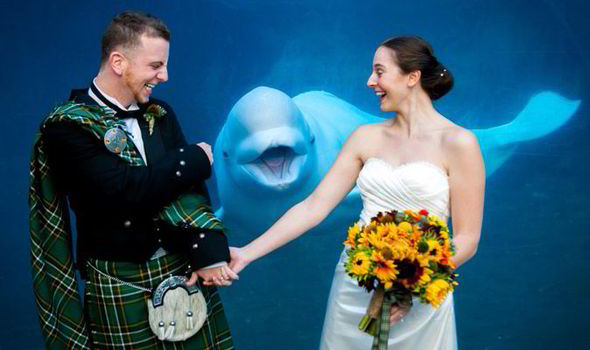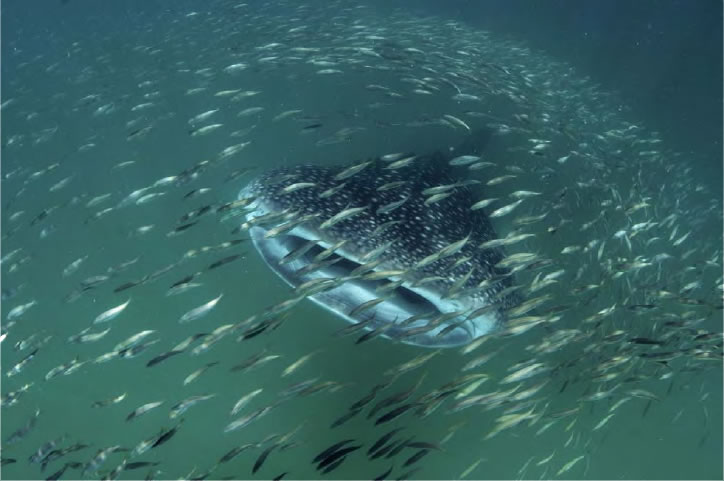Italian prosecutors investigate claims of restaurants serving dolphin
Prosecutors in the city of Civitavecchia are investigating claims that illicit dolphin meat is being served to customers in restaurants just north of the Italian capital.
A journalist from Silvio Berlusconi’s Italia Uno channel secretly filmed a meal at which the centrepiece was a salad dressed with thinly sliced flakes of dried dolphin fillet. The owner of the restaurant was shown warning him: “You didn’t eat this in my place, right?”
Ciro Lungo, head of the protected species unit of Italy‘s environmental police, the Corpo Forestale dello Stato, told the Guardian on Monday: “I can confirm an investigation into this matter is in progress.”
Lungo said that before seeing the television report, he had dismissed as fantasy rumours of dolphin meat being served up in Italy. But, he said, the high prices cited by those who were filmed implied “substantial demand” for the dark-coloured, dried meat.
The bill paid by Italia Uno’s undercover team came to 100 euros a head without wine. A wholesaler who was also secretly filmed claimed the price per kilo in Rome itself ranged as high as 900 euros.
He said dolphin meat was available in some restaurants in the capital, but was “certainly not written on the menu”. The best way to eat it, he recommended, was with “fresh onions, celery and tomato”.
Italia Uno’s report showed that clients who wanted dried dolphin fillet asked for it by a code name: the English word “black”. Independent laboratory tests carried out on the meat the journalist bought in the restaurant and from the wholesaler confirmed it was from dolphins.
Fishermen told the TV team that the meat normally came from dolphins caught in nets intended for other species. The majority were already dead when pulled from the water.
But, said one of the fishermen, “if they aren’t dead, they club [them] on the head”. Asked whether dolphins were sometimes caught deliberately, one said they were: “If they know that dolphins are there, you (sic) cast the nets there.”
Italian fishermen who catch dolphins are meant to hand over the carcasses to the coast guard. But according to the restaurant owner who catered for Italia Uno’s investigator, there is a way round the rules.
“They cut off the head. They cut off the fins and everything,” he said. “And if they’re stopped, they say it’s a shark.”
Dolphins are particularly vulnerable to driftnets, which were banned in the Mediterranean in 2002. A spokesperson for the World Wide Fund for Nature (WWF) said: “They’re completely illegal. But cases regularly come to light of their use on Italian fishing boats.”


